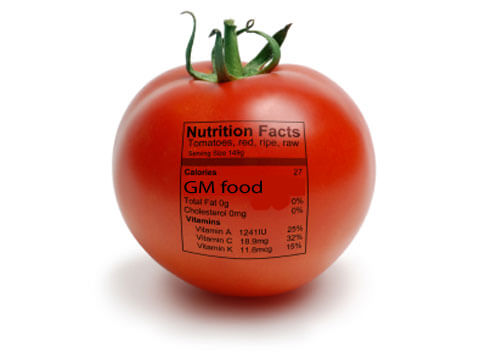 |
| Tomatoes |
Finding a solution to feed the world’s 9.5 billion people by 2050 requires the best minds in technology, science, engineering and agriculture.
The agriculture industry needs to broaden its STEM-focused recruitment, training and inclusion efforts to collectively meet the vital needs of a growing world.
Together We Grow is a coalition of members from the private and public sectors focused on doing just that: attracting the best and brightest talent to the increasingly high-tech modern agriculture industry. The coalition – of which Monsanto is a member - will accomplish this by sharing resources, combining expertise and efforts across the industry and ultimately expanding opportunities to more communities. In doing so, we hope to awaken more Americans to the incredible value they can bring to the ever-evolving modern agriculture industry.
Companies, non-governmental organizations, universities and government agencies with a stake in American agriculture are joined by this commitment to building a modern workforce that reflects the communities in which we live and work.
We sat down with Melissa Harper to discuss Monsanto’s involvement in the Together We Grow coalition and broader STEM initiatives.
What does Monsanto contribute to the efforts of Together We Grow?
Monsanto is one of the founding members of the Together We Grow coalition. Along with nearly 50 other organizations within the agriculture, academic, government and diversity and inclusion communities, Monsanto is helping to bring together a wide representation of public and private sector voices to better reach new populations.

What are some of the ways that message is being distributed?
Through this coalition and other STEM-related efforts, such as STEMconnector, Monsanto is working to reach students who may not already be considering a career in modern agriculture. Outreach happens through a variety of in-person meetings, partnerships with schools and universities, online promotion and information sharing across our industry. We are focusing on education, particularly in grades K-12, and we are introducing more agriculture opportunities to students at the post-secondary level and in urban areas.
How is Monsanto helping the advancement of the modern agriculture industry?
Beyond the work we do through the Together We Grow initiative, Monsanto has long been committed to STEM-related efforts and broadening the importance of agriculture to new audiences in a wide variety of communities across the globe. For example, Monsanto is involved in several initiatives to promote careers in modern agriculture including:
STEM Outreach
Starting well before the collegiate level, we are expanding our outreach by becoming an active participant in classrooms around the world, educating and offering resources to teachers and children who are interested in science and making it fun for all ages. We have a dedicated STEM Outreach Lead working to engage students in Kindergarten through 12th grade.
We are also reminding students that agriculture is one of our nation’s largest employers, with more than 54,000 jobs available each year. The spectrum of jobs available in agriculture is also broad: we are farmers, and we’re also IT professionals, data analysts, botanists, chemists, finance professionals, engineers and innovators.
Building Relationships
Addressing gaps in the agriculture and STEM work force can sometimes simply be a matter of changing the dialogue around agribusiness by focusing on the broad, exciting range of careers it holds. Other times it involves taking action to make sure we’re reaching, identifying and developing STEM talent proactively. Monsanto is doing this in a myriad of ways:
- Programs with key partners: Last November, Monsanto joined the White House, USDA and other agencies to help launch the America the Bountiful initiative. The program will work to expand and diversify the agricultural workforce.
- Fostering collegiate relationships: We work closely with our core partner Universities to enhance curriculum, develop new products and recruit talent. In addition to research agreements, faculty are actively adapting their curriculum to align with our hiring needs.
- Partnering with the Girl Scouts: Monsanto partners closely with the Girl Scouts to promote STEM opportunities. We provide funding to sponsor FIRST Robotics Teams for Girls Scouts of Eastern Missouri and Southern Illinois.
- Supporting STEM student groups: Monsanto has been a top tier corporate sponsor for the FIRST Robotics Championship in St. Louis, MO four years in a row. This year Monsanto will have a large booth teaching students how to build a Brush Bot to introduce engineering principles related to agriculture.

Why should someone entering STEM consider modern agriculture as a potential career path?
It’s an exciting and dynamic time to be in the agriculture industry as we face steep demands from the world’s rapidly changing and increasing need for food. As we look to the future, the only way to meet the vital needs of a growing world is to come together as an industry and seek new ways to broaden and diversify our employee base. In many industries, it may sound like hyperbole, but our company and our industry seek solutions every day to feed a planet whose population continues to grow. That’s an enormous challenge that we can only tackle with the best and the brightest on our teams.
How does somebody with a STEM background get involved in the modern agriculture industry?
For people looking into STEM-focused careers, the agriculture industry is hiring. The U.S. Department of Agriculture estimates the creation of 58,000 new STEM jobs between 2015 and 2020. As agriculture evolves, we need more people to understand the value of what they can offer.
There are a few great resources available if you are interested in a career in STEM and agriculture:










No comments:
Post a Comment